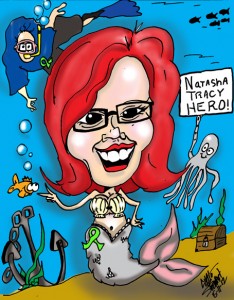The Best Thing About Being a Mental Health Writer
I’m a mental health writer. When I tell people I’m a mental health writer, however, the most common response I get is, “what’s that?”
Well, like a travel writer writes about travel, I write about mental health. Perhaps my type is not as common as a travel writer, but mental health writers are out there, nonetheless.
And, I have to say, it’s not easy being a mental health writer. It means talking about unpleasant subjects on a daily basis and facing parts of yourself that you’d probably prefer to gloss over. And it means forming an opinion, standing up and standing by that opinion even when it’s very unpopular. (At least, that’s what being a mental health writer means to me.)
And making a living is hard and there are no vacations, no weekends and no sick days.
The Best Thing about Being a Mental Health Writer
But. There are big bonuses.
Read More
















Recent Comments